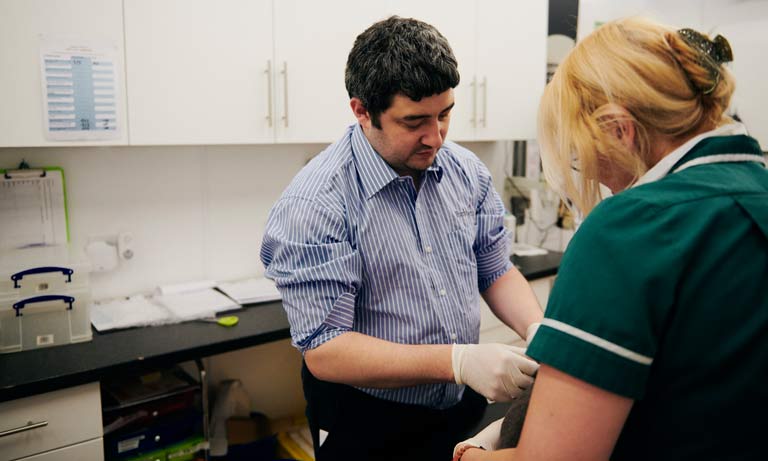Sunscreen, shade and sunset walkies: Vets issue urgent heatwave advice as temperatures set to rival 2018 record
15 Jul 2022
Vets and vet nurses are marking National Obesity Awareness Week (14-20 January) by sharing advice on how the profession and owners can work together to address the scale of the pet obesity problem.

Vets and vet nurses are marking National Obesity Awareness Week (14-20 January) by sharing advice on how the profession and owners can work together to address the scale of the pet obesity problem.
Two thirds (67 per cent) of companion animal vets responding to a recent survey carried out by the British Veterinary Association (BVA) said that obesity and overfeeding of pets was among their three most pressing animal welfare concerns. Many expressed concerns that owners of dogs, cats and rabbits were not aware that their pet was overweight or obese, that pets were being fed inappropriate portion sizes or that too many treats or human food were being added to their base diet.
As with humans, obesity is a very serious health issue for pets and can lead to life-long and life-threatening illnesses such as heart disease, breathing problems, diabetes and arthritis.
Not following or understanding pet food feeding guidelines, providing too many treats and snacks, and a lack of exercise are all issues contributing to the pet obesity problem.
Although many people believe they are being kind to their animals by providing treats and bigger food portions, they are instead, unintentionally, contributing to their pet’s poor health and limiting their lifespan. Many owners also give their pets human food as a treat, however, one human biscuit can equate to a whole packet when fed to an animal due to their smaller body size.
Follow these easy steps to keep your pet in tip-top condition, not tipping the scales:
Walking or running with your dog is cheaper than a gym membership and fun and rewarding for both of you. Take an extra circuit around the local park or enjoy a walk in the country; just remember to keep them warm in these winter months and put them on a lead when there is livestock around.
It’s far healthier to give a pet something that they can play with and get fun exercise from rather than something that could make them pile on the pounds. Treats should only be given in moderation.
A vet will be able to give advice on a healthy regime based on its breed, size, age, and lifestyle.
The media often show bowls full to the brim with pet food, but a vet can tell you how much and often you should be feeding your pet.
A vet will be able to offer the best advice and is trained to monitor an animal’s body condition score as well as its weight.
BVA advises that vets should check a pet’s body condition score and weight at least once a year, and more regularly when a young animal is in its growth phase.
Vets and vet nurses are trained to speak to clients about obesity prevention in a sensitive manner. They want what’s best for your pet’s health and welfare and are here to help if you have any questions or concerns.
“This National Obesity Awareness Week it’s just as important to think about how we can make sure our pets are at a healthy weight and following the diet and lifestyle that’s right for them. Pets who are overweight or obese are at risk of a range of serious health problems and a poorer quality of life, so it’s vital to feed them the right diet, tone down the treats and make sure they have regular opportunities to exercise.
“Many owners don’t realise that their pet may be overweight or at risk of obesity, or may be afraid to ask for support, but vets are here to help and will soon get your animal back on track to feeling furry, fit and fabulous.”
BVA policy - Companion animal obesity (dogs, cats, horses, donkeys and rabbits)
Get tailored news in your inbox and online, plus access to our journals, resources and support services, join the BVA.
Join Us Today